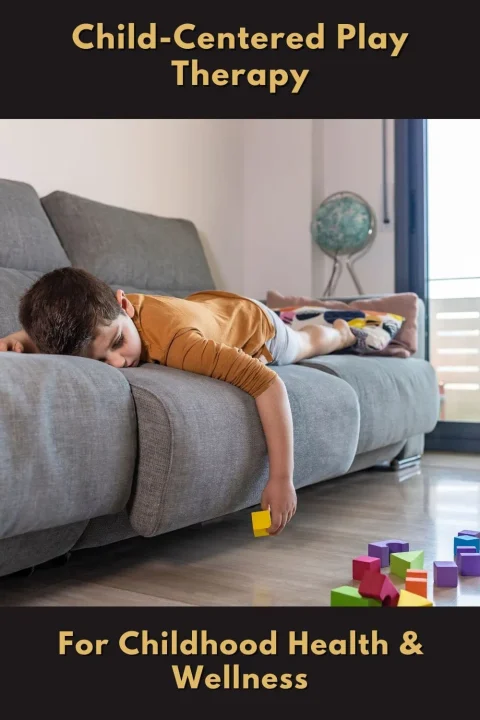Today's Thursday • 7 mins read
— Researched and written by Dr. Sandip Roy.
Play therapy is effective in treating mental illness and behavioral problems in children.
In play therapy, the therapist follows the child’s lead through play, and the child expresses thoughts and feelings that might be difficult to communicate otherwise.
It is particularly effective in children’s mental health treatment, including those with autism, as it provides a non-threatening environment for them to explore and express their feelings.
Key Takeaways:
- Definition: Play therapy is a therapeutic intervention using play to help children and adults express their thoughts and emotions.
- Role of Play: Plays serve as a medium for children to explore, process, and understand their experiences, aiding in self-expression and emotional processing. It is especially helpful for children under 10 years of age.
- Benefits: Play therapy can help kids express their repressed emotions, improve communication between the child and parent, help language development, improve problem-solving and decision-making skills, and heal from past traumas.
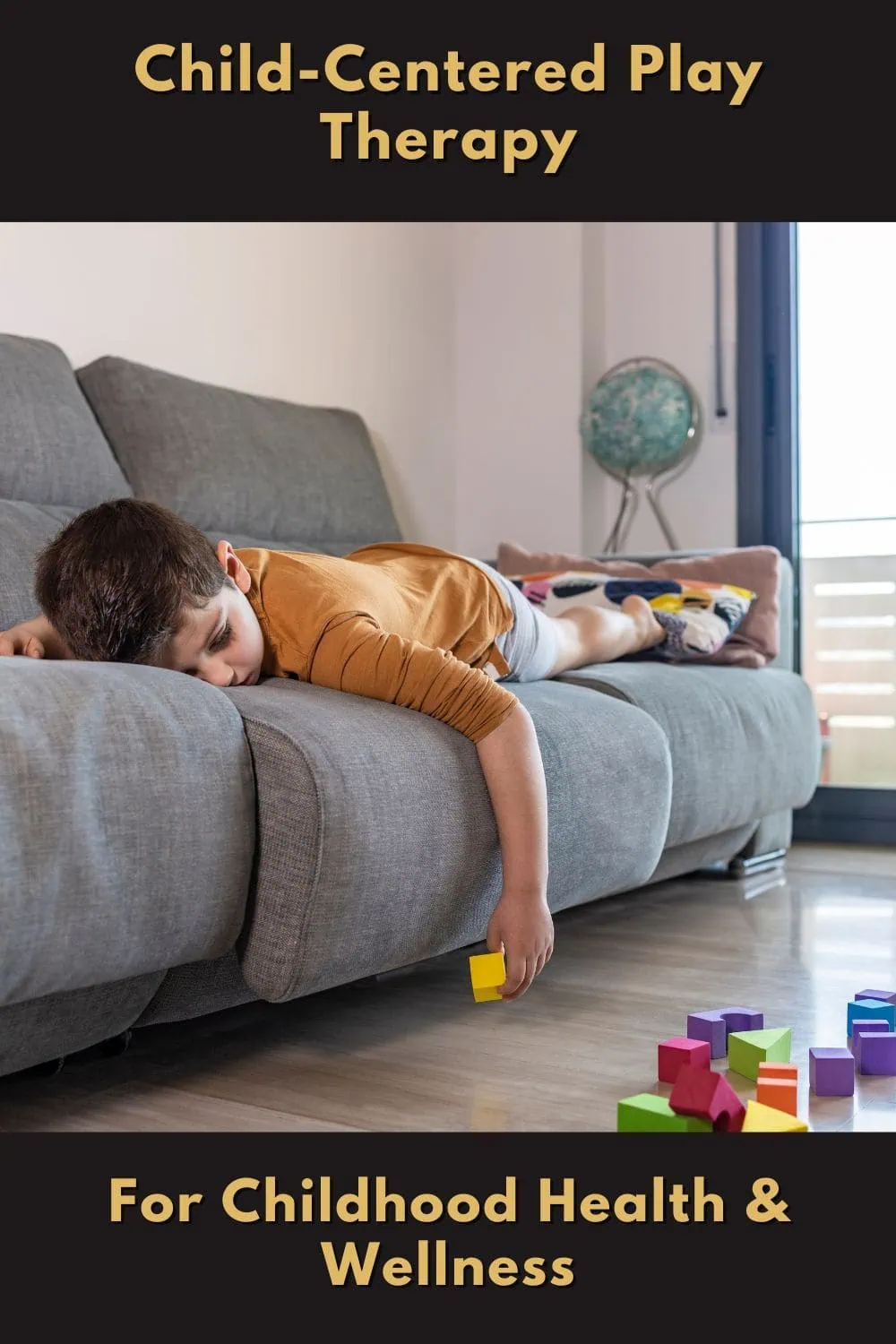
Core Beliefs of Play Therapy
According to Piaget’s cognitive theory, children below the age of 11 years often lack the full capability for abstract thought, necessary for meaningful verbal expression. So, for children 10 years or younger, play is the natural medium of self-expression.
Play therapy allows children to directly or symbolically act out their thoughts and emotions.
- Emotional Expression: It provides a safe space for individuals, especially children, to express and process their emotions. Through play, they can act out scenarios or use toys to symbolize their feelings, aiding in emotional healing.
- Communication Skills: Play therapy expands communication abilities, particularly in children who struggle with verbally expressing their thoughts, feelings, and ideas. It helps them develop vocabulary and effective self-expression.
- Cognitive Development: Play therapy also encourages problem-solving and decision-making, fostering critical thinking and cognitive growth.
- Social Skills: It offers kids opportunities to test and grow their social skills, and learn empathy, cooperation, and healthy relationship building.
- Self-Esteem and Confidence: It can help boost self-esteem and confidence, empowering children to build resilience, overcome challenges, and bounce back from hard times.
- Trauma Healing: Play therapy is particularly effective in helping kids process and heal from trauma, allowing them to gain an understanding of their traumatic experiences, and master those difficult emotions/memories.
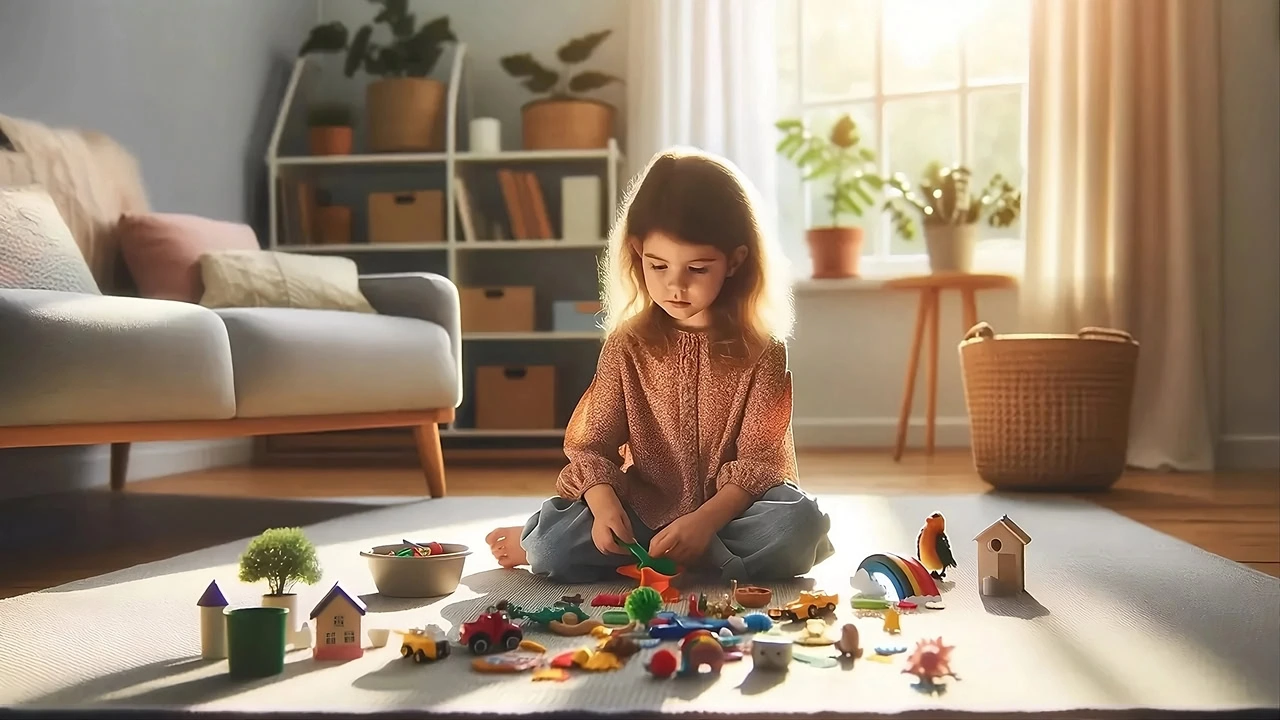
8 Principles of Child-Centered Play Therapy
Child-centered play therapy, developed by Virginia Axline (1911-1988), is based on the principles of non-directive therapy and emphasizes a supportive and understanding environment for children to express themselves and resolve their issues.
The eight principles of child-centered play therapy are:
- Establishing a Warm, Friendly Relationship: The therapist creates a welcoming and safe environment where the child feels comfortable and understood. This relationship is the foundation for effective therapy.
- Accepting the Child as They Are: The therapist accepts the child unconditionally, without judgment or evaluation. This acceptance helps the child feel valued and understood, regardless of their behavior or emotions.
- Establishing a Feeling of Permissiveness: In the therapy setting, the child is allowed to express feelings and thoughts freely. This permissive atmosphere encourages the child to explore and express their emotions without fear of judgment or repercussions.
- The Child Leads the Way: The therapist follows the child’s lead, allowing them to direct the play and conversation. This approach respects the child’s ability to solve problems and make choices, fostering independence and self-confidence.
- The Therapist Does Not Direct the Child’s Actions: The therapist avoids directing or leading the child, instead allowing them to explore and play in their own way. This non-directive approach helps the child feel in control and capable of finding their own solutions.
- The Therapist Reflects the Child’s Feelings: By reflecting the child’s feelings, the therapist helps them gain insight into their emotions and behaviors. This reflection helps the child understand and manage their feelings more effectively.
- Respect for the Child’s Ability to Solve Problems: The therapist believes in the child’s capacity to find solutions to their problems. This respect empowers the child, encouraging them to explore and find their own answers.
- Setting Limits Only When Necessary: Limits are set to provide structure and safety, but they are minimal. When limits are necessary, they are set clearly and consistently, helping the child understand boundaries while still feeling respected and supported.
These principles collectively create a therapeutic environment where children can explore their thoughts and feelings through play, leading to emotional healing and personal growth.
Does play therapy involve games?
Play therapy often involves playing games, but it’s more than that. Play is a natural way for children to communicate and express their feelings, thoughts, and experiences. It’s a language they are most comfortable with and can understand easily.
The types of play in play therapy can include:
- Traditional Games: Board games, card games, and other structured games can be used. These games can help in building rapport, teaching skills like turn-taking, patience, and dealing with winning or losing.
- Creative Play: This includes drawing, painting, building with blocks, and other creative activities. Creative play allows children to express themselves non-verbally and can be very revealing of their internal thoughts and feelings.
- Role-Playing: Children often use role-playing or pretend play to act out scenarios. This can be a way for them to express their understanding of the world around them, their fears, hopes, and experiences.
- Sand Tray Therapy: Involves using a tray of sand in which children create scenes using miniature figures and objects. This type of play can be particularly powerful in helping children express and work through complex emotions and experiences.
- Dramatic Play: Using costumes, puppets, and other props, children can act out stories. This can help them express emotions, practice problem-solving, and work through traumatic experiences in a safe environment.
- Therapeutic Storytelling: Involves creating or reading stories that have themes or messages relevant to the child’s experiences. This can help children understand and process their own feelings and experiences.
- Sensory Play: Activities that involve touch, smell, sight, and sound can be particularly engaging for younger children and those with special needs. This type of play can help in calming anxiety and improving focus and attention.
- Physical Play: Activities like jumping, running, or playing with balls can be used, especially to help children with a lot of energy or those who need to develop motor skills.
The type of play used is often tailored to the individual child’s needs, interests, and therapeutic goals. So that the child has the freedom to express themselves in a way that is natural and comfortable for them.
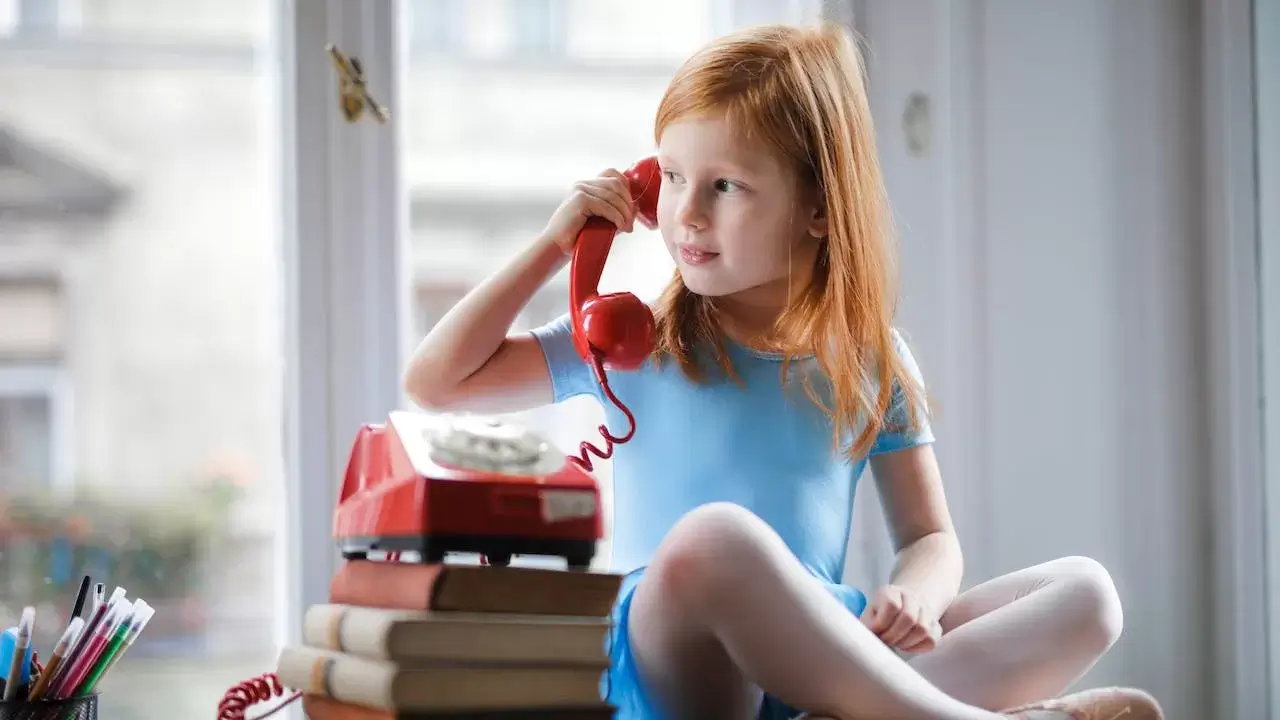
FAQs
How does play therapy benefit children with autism?
What techniques are used in play therapy sessions?
How long do play therapy sessions last?
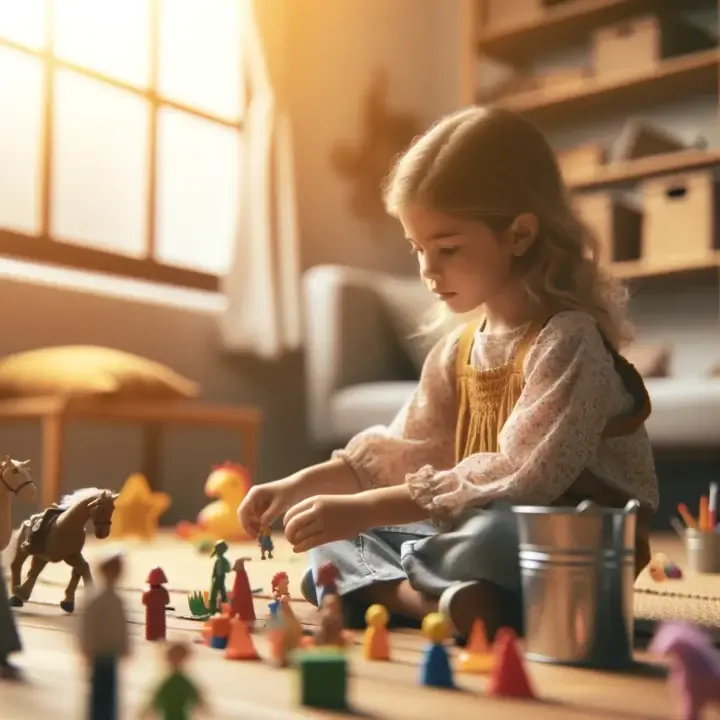
Further Reading: Senko, K., & Bethany, H. (2019). PLAY THERAPY: An Illustrative Case.
√ Also Read:
- How To Protect Your Child From Intergenerational Stress
- How To Build Your Child’s Willpower For A Brighter Future
- How Does Childhood Stress Affect Mental Health In Adults
- Parenting Mistakes Made By Parents of Depressed Children
- How To Remember Repressed Childhood Trauma Memories
√ Please spread the word if you found this helpful.
• Our Story!
